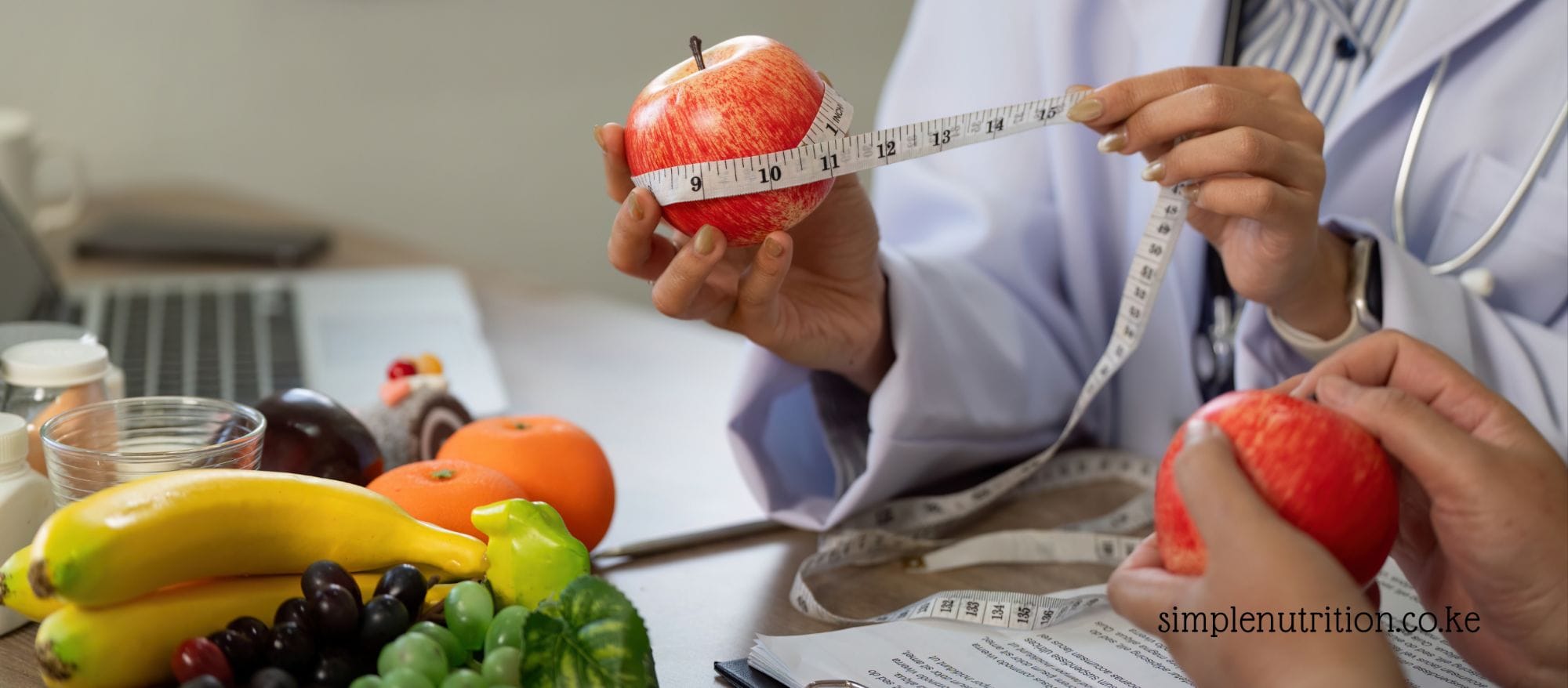Spotting the early signs of nutrient deficiency can save you from long-term health problems that often go unnoticed until it’s too late. Common deficiencies such as Vitamin A deficiency, Vitamin B12 deficiency, and Vitamin D deficiency can lead to serious issues ranging from poor vision and chronic fatigue to weakened bones and a compromised immune system. Many people mistake these symptoms for everyday tiredness or stress, but learning how to recognize them early is key to protecting your health and well-being.
The Recommended Dietary Allowances (RDAs) for minerals and vitamins are established to prevent deficiencies and ensure our bodies receive the necessary nutrients for optimal functioning.
Even slight inadequacies in nutrient intake can lead to significant health issues over time.
The most common deficiencies like vitamin A, D, b 12 may or may not show any signs and symptoms, but here is what you need to know;
What is Vitamin A deficiency. VAD
Vitamin A is a crucial nutrient essential for maintaining good health. It comes in two forms: preformed vitamin A in animal products, and provitamin A carotenoids in plant-based foods.
Vitamin A deficiency is a significant global health issue, leading to problems such as night blindness, infections, and impaired growth. Preventing vitamin A deficiency involves consuming a balanced diet rich in preformed vitamin A and provitamin A carotenoids found in foods such as liver, fish, dairy, carrots, spinach, and sweet potatoes.
Supplementation programs are also implemented in high-risk populations.
Vitamin A deficiency, often abbreviated as VAD, is a significant public health concern globally, particularly in regions where access to diverse and nutritious food is limited.
This essential vitamin plays a crucial role in various bodily functions, including vision, immune function, reproduction, and cellular communication.
How to prevent vitamin A deficiency.
- Eat Vitamin A-Rich Foods: Include foods that are rich in preformed vitamin A (retinol) in your diet, such as liver, fish oil, eggs, and dairy products like milk and cheese.
- Consume Carotenoid-Rich Foods: Incorporate fruits and vegetables rich in provitamin A carotenoids, such as carrots, sweet potatoes, spinach, kale, apricots, mangoes. These compounds can be converted into vitamin A in the body.
- Include Variety in Your Diet: Aim for a diverse range of foods to ensure you’re getting a spectrum of nutrients, including vitamin A and other essential vitamins and minerals.
- Consider Vitamin A Supplementation: In regions where vitamin A deficiency is prevalent or for individuals at higher risk, supplementation may be recommended, especially young children, and those with certain medical conditions. However, it’s essential to consult with a healthcare professional before starting any supplementation regimen.
- Promote Breastfeeding: Breast milk is a natural source of vitamin A, making breastfeeding crucial for infants’ vitamin A intake during the early stages of life.
What is Vitamin D deficiency
Vitamin D deficiency occurs when your body doesn’t get enough of this essential nutrient, which is crucial for various bodily functions, including bone health, immune system function, and mood regulation. There are several factors that can contribute to vitamin D deficiency, such as limited sun exposure, inadequate dietary intake, certain medical conditions, and certain medications.
Symptoms of vitamin D deficiency can vary and may include:
- Bone Pain: Vitamin D plays a key role in calcium absorption and bone metabolism. Deficiency can lead to bone pain, muscle weakness, and an increased risk of fractures.
- Muscle Weakness: Inadequate levels of vitamin D can cause muscle weakness and fatigue, impacting overall physical performance.
- Increased Susceptibility to Infections: Vitamin D plays a role in modulating the immune system, and deficiency may increase the risk of infections and autoimmune diseases.
- Mood Changes: Some research suggests a link between vitamin D deficiency and mood disorders such as depression and seasonal affective disorder (SAD).
- Impaired Wound Healing: Vitamin D deficiency may impair the body’s ability to heal wounds and recover from injuries.
How To Prevent vitamin D deficiency:
- Sun Exposure: Spend time outdoors in sunlight, as your skin produces vitamin D when exposed to sunlight. Aim for 10-30 minutes of sun exposure on arms, legs, or face a few times per week, especially during midday when the sun’s rays are strongest.
- Dietary Sources: Incorporate foods rich in vitamin D into your diet, such as fatty fish (salmon, mackerel, tuna), fortified foods (milk, cereal, orange juice), egg yolks, and mushrooms.
- Supplementation: If you’re at risk of vitamin D deficiency or have inadequate sun exposure, your healthcare provider may recommend vitamin D supplements. Dosage recommendations should be personalized based on individual needs and health status.
- Regular Monitoring: Consider getting your vitamin D levels checked regularly, especially if you have risk factors for deficiency or live in regions with limited sunlight.
NB: if you are on a strict vegan diet, you are most likely to suffer from vitamin D deficiency, and that is why it will be important to include most of these vitamin D rich foods in your diet.
What is Vitamin B 12 deficiency
Vitamin B12 deficiency occurs when the body doesn’t have enough of this essential vitamin, which is crucial for various bodily functions, including nerve function, red blood cell formation, and DNA synthesis. There are several factors that can contribute to vitamin B12 deficiency, such as inadequate dietary intake, impaired absorption, certain medical conditions, and certain medications.
Symptoms of vitamin B12 deficiency can vary and may include:
- Fatigue: Vitamin B12 is involved in energy production, and deficiency can lead to feelings of fatigue and weakness.
- Pale or Jaundiced Skin: A deficiency in vitamin B12 can result in pale or jaundiced (yellowish) skin due to decreased red blood cell production.
- Neurological Symptoms: Vitamin B12 plays a crucial role in nerve function, and deficiency may cause neurological symptoms such as numbness or tingling in the hands and feet, difficulty walking, balance problems, memory loss, and cognitive decline.
- Mood Changes: Some individuals with vitamin B12 deficiency may experience mood changes, such as depression or irritability.
- Digestive Issues: Deficiency in vitamin B12 can lead to digestive symptoms such as diarrhea, constipation, loss of appetite, and weight loss.
How To Prevent vitamin B12 deficiency:
- Consume Foods Rich in Vitamin B12: Include foods that are rich in vitamin B12 in your diet, such as meat (beef, poultry, fish), dairy products (milk, cheese, yoghurt), eggs, and fortified foods (certain breakfast cereals, plant-based milk alternatives).
- Consider Supplementation: If you have difficulty meeting your vitamin B12 needs through diet alone, or if you have conditions that affect absorption (such as pernicious anaemia or gastrointestinal disorders), your healthcare provider may recommend vitamin B12 supplements.
- Regular Monitoring: Individuals at risk of vitamin B12 deficiency, such as vegetarians and vegans, older adults, and those with certain medical conditions, should consider regular monitoring of their vitamin B12 levels through blood tests.
- Address Underlying Causes: If you have conditions that affect vitamin B12 absorption, such as pernicious anaemia or gastrointestinal disorders, work with your healthcare provider to manage these conditions effectively.
Vitamin B12 is an essential vitamin found in animal sources.
Strict vegans may actually need supplements for that matter.
How to enjoy fruits and vegetables.
When people think about nutrition, they think of green and the food stops being delicious or attractive anymore.
Fruits and vegetables provide so many benefits to our bodies, more especially the fibre that tags along phytochemicals, and minerals but of course not forgetting the very many vitamins that can help prevent most deficiencies.
A diet that consists of these vegetables and fruits prevents you from developing so many diseases including many cancers and even type 2 diabetes.
VEGETABLES
Vegetables come in very many different attractive colors, vegetables contain so many different vitamins, vitamin A, vitamin C, k and so many others. Your body needs these vitamins, to boost your immunity to be able to fight diseases. To enjoy most of these vegetables;
- Add vegetables like tomatoes to your sandwich.
- Enjoy a side plate of vegetable salad at lunchtime.
- Serve vegetables first, and fill up half your plate before serving other foods.
- Incorporate vegetables in other foods, what about vegetable rice?
- Mix up vegetables of different types, textures, and colors.
FRUITS
- Make a fruit juice/smoothie for breakfast.
- Carry along a fruit snack.
- Enjoy a fruit salad after your lunch.
- Make small bites for children to snack on.
- Take advantage of seasonal fruits, and stock them.
Discover more from Simple Nutrition
Subscribe to get the latest posts sent to your email.



